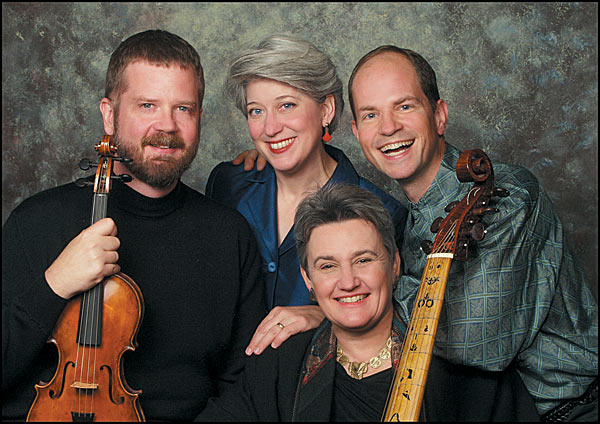Baroque Britisher Thomas Arne rules in Newberry Consort season opener

Though not as high on the cognoscenti radar as the Chopin and Schumann bicentennials, the tercentenary of composer Thomas Arne (1710-1778) was celebrated Sunday afternoon by the Newberry Consort in their season-opening program at Northwestern University’s Lutkin Hall.
If the name of the British Baroque composer doesn’t ring a bell, just strike up the first few notes of his most famous song, the patriotic air Rule Britannia! still known around the world as an aural icon of the British Empire and which has been quoted, paraphrased and reworked by no less than Handel, Beethoven, Wagner, Johann Strauss I, Gilbert & Sullivan and Elgar, among others.
But there is far more to Arne, as this exploration of his vast output demonstrated with considerable style and panache. The most prolific theater composer of the 18th century, Arne composed music for nearly 90 stage works that included plays, pantomimes, masques, burlesques, afterpieces and operas.
Arne wrote incidental music and songs for several Shakespeare plays and the best known of these, Where the bee sucks from The Tempest, was given a spirited rendition by tenor William Hite in a set that also included a colorful duet between mezzo soprano Judith Malafronte and flautist Anita Rieder as they antiphonally traded cuckoo emulations in When daises pied from Love’s Labour’s Lost. At one point Malafronte, who also selected and arranged the day’s program from Newberry holdings of Arne’s music, even paraphrased Mozart’s Queen of the Night rage aria from The Magic Flute to show the influence that Arne would have.
Likewise, the excerpt from Arne’s 1771 masque The Fairy Prince revealed a similar sound world to Handel oratorios, and Arne and Handel would often compose for the same singers; soprano and now Newberry Consort co-artistic director Ellen Hargis and Malafronte blended exquisitely and were punctuated by Hite’s tenor in the trio Now all the air shall ring which climaxes in Arne’s own alternative setting of God save the King.
Most revealing was a significant section of Thomas and Sally, which though written as an “afterpiece,” to be heard folllowing a play, is credited with being the first through-composed opera to have no spoken dialogue whatsoever. Basically Thomas (Hite) politely hits on Sally (Hargis), Thomas is musically slapped and rebuffed. He wallows and cajoles, she outwits him and has the last word in love and song.
In addition to supplying a lively instrumental Scottish Gavotte for Thomas and Sally, the first-rate Baroque ensemble of violinists David Douglass (Newberry co-artistic director) and Brandi Berry, cellist Craig Trompeter and harpsichordist Jason Moy, the group also performed an Arne Trio Sonata as well as supplied stalwart support and accompaniment for the singers all afternoon, often joined by Rieder on flute.
No concert of Arne’s music would be complete without a rendition of Rule, Britannia! It was especially illuminating to hear the patriotic air in its original context and performance style as the finale chorus following a generous selection of excerpts from Arne’s 1740 masque Alfred about Alfred the Great. The chorus itself was printed in the program in four-part harmony, and with proper cues from the stage, the small audience did manage to harmoniously join in at the appropriate points.
Posted in Uncategorized




